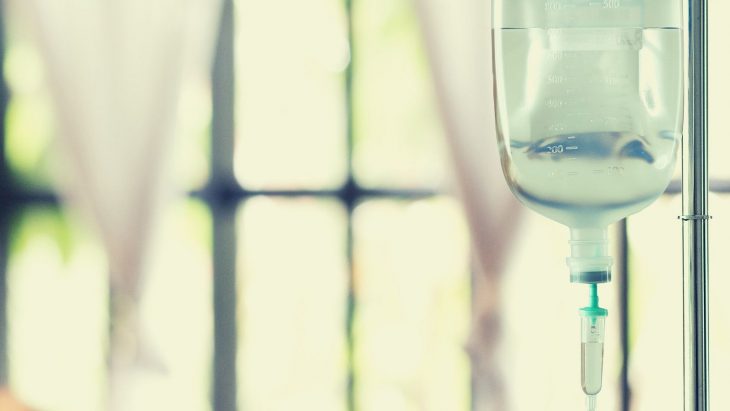For all of the damage the coronavirus pandemic has caused, it has undoubtedly pushed medical innovation forward. Ivermectin, remdesivir, hydroxychloroquine, lopinavir, interferon B, convalescent plasma, and more have been investigated for their effectiveness in different populations of COVID-19 patients.
Neutralizing monoclonal antibody therapy is only the latest in treatments making their way through the US’s clinical trial machine. They are laboratory-made proteins designed to interact with the spike protein at the helm of the coronavirus envelope, preventing it from binding to and entering our cells.
Two monoclonal antibody products, bamlanivimab and casirivimab/imdevimab (otherwise known as Regeneron), have recently been given Emergency Use Authorizations by the United States Food and Drug Administration and were administered for the first time in a large trial in a real-world clinical setting. These drugs are not pills — they are IV infusions that must be administered in a medical facility.
To qualify for the trial, patients had to test positive for COVID-19 by PCR or rapid antibody testing. They also had to be high-risk — over 65 years of age, and either a BMI above 35 or one or more chronic health conditions such as diabetes or kidney disease. They also needed to have only been sick for 10 days or less, not hospitalized, and not on supplemental oxygen. The treatment was not given to more severely ill people based on previous experience with how the treatment works in smaller trials.
The trial was conducted from December 2020 through February 2021 by the Inova Health System in Falls Church, Virginia, USA, and it included 707 COVID-19 positive patients. These patients’ outcomes were compared to the medical records of 1709 COVID-19 patients collected throughout the pandemic by Inova. The patients first met with doctors over video chat to determine eligibility for the trial, then eligible patients were assigned to “day hospital” style treatment centers to receive their infusion. Follow-up appointments were conducted over video chat, and any hospitalizations that occurred were also recorded. Patients were followed for up to 30 days after treatment.
Only 5.8% of patients given the antibody treatment ended up hospitalized, which was an improvement over the 11.4% hospitalization rate of the control patients. Antibody patients also stayed in the hospital for less time, an average of 5.2 days compared to 7.4 days for controls. They were also less likely to visit the emergency room and had longer overall survival.
For those patients suffering from chronic illnesses known to increase the risk of COVID-19 severity, called “comorbidities,” the outcomes were more ambiguous. Monoclonal antibody patients who were hospitalized tended to have more comorbidities than controls who were hospitalized. There was no difference in comorbidities in non-hospitalized patients, whether they were given the treatment or not. Because these are statistical associations, which cannot determine root causes on their own, it is hard to say exactly what this means.
One key finding the authors pointed out is that the lowest hospitalization rate, 3.1%, occurred in patients who received their treatment within 2-4 days after first feeling sick. The rate increased from there. For those who received the infusion 8 or more days after their first symptoms, the hospitalization rate jumped up to 8.7%. This indicates a possible lower risk of hospitalization if you get treated early.
The authors were encouraged by these results. It does appear that neutralizing monoclonal antibody infusions do reduce suffering for those in high risk groups with mild to moderate COVID-19 infections. They do urge that more trials are needed in groups of patients with a wider range of ages, physical characteristics, and health states to see exactly who would benefit from the treatment.


